Lodging your application for the First Home Owners Grant (FHOG) can be overwhelming. It is a common dilemma, with more than 80% of first-time submissions lodged incorrectly. This guide will help you understand what this government grant is. Additionally, you can increase your chances of getting approved by providing a complete and accurate FHOG application the first time around.
What is the First Home Owners Grant (FHOG)?
Understanding what FHOG entails is the key to lodging your application successfully. The First Home Owners Grant is a type of grant that the Federal Government gives to first home buyers. This way, they can enter the market with ease, generally by affording the payments.
Although this one-off grant is from the Federal Government, the State Governments handle the management process.
The benefits differ from one state to another, particularly when it comes to the amounts. Some states give additional grants and stamp duty exemptions. However, others do not have concessions for first home buyers. All Australians need to know about the eligibility criteria between states and the benefits involved.
Aside from the location of the borrower, other details that affect your grant are:
- Whether the house is new or you will build it yourself
- If it is an established property
- Purchasing a vacant land
- Building type
- Purchase price of the property you want to buy
First Home Owners Grant is not a new scheme. It has been around since 2000. Its goal is to assist Australians who have decided to purchase a property in the country. What it does is it offsets the effect of the goods and services tax (GST), which is applied on homeownership.

FHOG in Western Australia and the Other States
The First Home Owners Grant is available in all Australian states. In Western Australia, the First Home Owners Grant is $10,000. It is given to residents who are either buying or building a new house. Therefore, you are not eligible for the grant if you will purchase an established home or one that is already built.
Stamp duty concessions are available in Western Australia. It means that the First Home Owner Rate of Duty offers concessions and exemptions for those buying properties worth less than $530,000. The same rules of exceptions apply to those who will purchase vacant land for less than $400,000.
If the purchase price is equivalent to $430,000 to $530,000, a $19.19 duty payable rate is applicable for each $100.
Properties valued at $530,001 and up will not be presented with an exemption. Meanwhile, vacant land priced at $299,999 and below will be free from stamp duty. For those exceeding the mentioned amount, the duty payable is $13.01 for each $100. All exemptions disappear when the vacant land is worth $400,001 and up.
For other states, here are some of the details that differ from Western Australia:
- New South Wales: The property should be valued lower than $600,000. If it is land where the property will be built, its price should be less than $750,000. The First Home Buyers Assistance scheme will give first home buyers with concessions from stamp duty.
- Victoria: The First Home Owner Grant in the state is eligible for those purchasing or building a house priced at $750,000 (maximum) in metropolitan Melbourne. The FHOG in this state is $20,000
- Queensland: A $15,000 grant is awarded to first home buyers who will purchase or build a house. Only those who will buy a property valued at $750,000 or less will get the grant. Stamp duty concessions are also provided for people who will purchase a house worth $550,000 ($400,000 if it is vacant land).
- Australian Capital Territory: Those in the ACT will get a grant of $7,000, which is lower than the other states. However, it applies to those who will purchase either a new or renovated home. Starting 1 July 2019, ACT buyers do not have to pay duty as long as they are over 18 years old. They should also have an income below the threshold, which is $160,000 for those with no dependent children.
- South Australia: FHOG is valued up to $15,000 for construction or purchase of a new house costing up to $575,000. No transfer duty concessions are available in this state.
- Tasmania: First-time homebuyers can get $20,000 worth of assistance to purchase a new house or build one. It also applies to those who wish to buy a property off-the-plan.
- Northern Territory: FHOG in NOT is $10,000 for those who purchase or build a new house. There are currently no limitations when it comes to the value of the property. The territory Home Owner Discount (THOD) offers concessions up to $18,601 off the stamp duty.
In most cases, only one grant is provided for every approved transaction. For instance, if you and your partner both apply for FHOG, you will only receive one grant.
First homeowners in Western Australia can claim an additional $2,000 as part of the Home Buyers Assistance Account. It is for reimbursing a portion of the home buying expenses, including conveyancing, valuation, inspection, and solicitor fees.
Before you can get the Home Buyers Assistance Account, you should first pay $400,000 (or lower) for the house. In addition, the property should be bought with the help of a licenced real estate agent serving the state.
Note, though, that you cannot avail of this assistance if you plan to build the house yourself. Therefore, you should make sure that the first home is either constructed partially or entirely.

FHOG Eligibility Criteria: Are You Qualified?
Western Australia has strict regulations when it comes to the type of houses that are eligible for the grant. If you are a first homeowner, it is possible to get approved for the grant. However, you should only purchase a new house. The only allowed exception is if you build an entirely new home.
Renovations may also be considered, but the property should be substantially renovated. The Commissioner provides details and factors which determine if a house fits this criterion.
If your FHOG application was accepted, but you wish to purchase an established home instead, you may be qualified for the concessional rate of transfer duty called First Home Owner Rate of Duty. It is applicable if the value of the dutiable property is lower than the threshold.
Aside from these property requirements, FHOG also has a strict set of criteria for qualified applicants. The conditions vary slightly between states and territories. However, the following are for those in WA and most other locations:
- You should apply as an individual and not as a trust or company.
- If you apply as a couple, at least one of you should be an Australian citizen. One permanent resident is also allowed.
- All applicants should be 18 years old or above.
- If you or your co-purchaser (who can be your spouse or partner) owned an interest in Australian land with residence before 1 July 2000, you would not be allowed to lodge.
- If you or your partner is an owner of residential property since 1 July 2000 and you have lived there, your application will be rejected as well.
- It should be the first time that you and your co-purchaser have claimed FHOG.
It is also significant that you move into the purchased house within 12 months after it was bought or built. Another requirement is that you should remain in that property for the next 12 months.
Steps in Applying for the First Home Owners Grant
Claiming FHOG does not have to be such a complicated procedure. There are three easy steps that you can follow to ensure that you can claim your grant. Here they are:
- Make sure that you complete the application form.All relevant sections of the Western Australia application form for FHOG should be filled out completely and accurately. This link will take you to the state's application form. You can use it either for the FHOG or as pre-approval of the First Home Owner Rate of Duty (if applicable).
- Provide all the needed documentation.Use the items below as your checklist for the supporting documents before proceeding to the final step:
- Contract of Sale: Western Australia and other states and territories require the submission of a copy of the agreement for every application. WA does not need the certified copy, unlike Victoria, NSW, and ACT.
- Your Identification: The ID requirements will depend on the approved agent that you are using. Typically, though, you will need to provide certified ID documents, such as your Australian birth certificate, citizenship certificate, or passport. Meanwhile, if you were born in another country, you should give the photo page of your current passport, along with the permanent residency evidence or visa.
- Certificates: The other files should be certified, including marriage or divorce certificate. If widowed, you will then have to provide a certified copy of your spouse’s death certificate.
- Name Change: Applicants who have changed their names should send a certified copy of the certificate.
For separated couples, a statutory declaration should be submitted. Ensure that it contains the information, including the name of the former partner, their date of birth, and the year you were married or the beginning of the domestic relationship.
It is required to provide the date of the separation and the current address of the former partner if it is known. A statement that you no longer live together and that there are no intentions of cohabitation should also be submitted.
- Lodge your application.You have two options when applying. First is through an approved agent or lender, which is required, particularly if you need the grant for settlement. You should also hire an agent if you need FHOG for the first drawdown or progress payment.Quantum Finance can help you out by serving as your mortgage broker. This way, you can get assistance with the grant application and get a higher chance for approval.
The other option is through the State Revenue Office.
Tips to Help Your Application Get Approved
Some applications get rejected simply because they were not correctly filled. Reduce (or eliminate) the chance of getting your application redone with the following tactics:
- You should only use a black pen. Make sure that your handwriting is clear. Only write with block letters to prevent assessors from misreading your writing.
- When writing names, you should always include any former names, such as maiden names.
- Base your legal name on your passport or birth certificate.
- Signing the form should be performed after you have secured the building or sale contract.
- Some questions may be unclear for you, but you should never guess any answer. You can get help from your agent to discuss what you should write in the form.
- You should not worry if you ever made a mistake. Just cross it out as neatly as you can and never use white-out. Then, you can write the correction next to the error. The change should contain your initials, as well as your partner’s (if applying as a couple).
Finally, add a certification statement. A certified copy of the document is an exact copy of the original file that you have. It should have been certified and observed by an authorised person. This individual can be anyone from a justice of the peace or even a police officer.
The certification can be written as simple as confirming that the authority has sighted the genuine or original document and it was not altered. All files that require certification should contain the full name of the certifier, as well as the title or qualification, and the registration number if applicable. It should also be signed and dated.
If you are purchasing a property, you can expect the First Home Owners Grant to be given within three to six weeks after settlement. Meanwhile, if you seek the FHOG for a contract to build, you will be paid after you have provided evidence of the first construction progress payment.
If you apply as an owner-builder, you can get the funds after you have the evidence that the home is ready for occupancy. Plus, you have the Certificate of Title, which contains your name.
Our Lenders


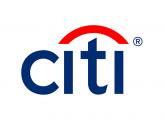


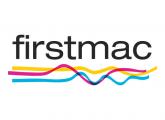



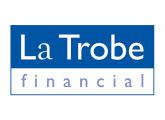



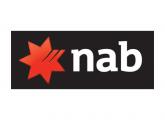



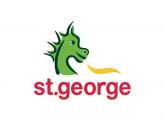

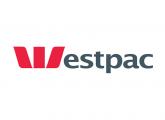
Enquire With Us Today
